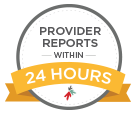Florida Board Approved #50-20641 Course # 20-630003
Reports to CE Broker within 24 Hours

Catastrophic Events, as well as various kinds of Adverse Life Events, which affect many people each day, can have a significant impact for those involved on their behavior and emotional functioning. The goal of this course is to provide mental health practitioners, nurses, social workers, and other clinicians with the tools that they need to assist clients and patients in identifying and processing these traumatic experiences that may be negatively impacting their lives.
Course Curriculum
-
1
Fundamentals of Trauma Processing
-
Course Description
-
Learning Objectives
-
Course Outline
-
Introduction
-
The Evolution of Our Understanding of Trauma-Related Disorders
-
Conceptualizing Trauma: Building a Foundation
-
Types of Post-Traumatic Stress Disorders
-
Post-Traumatic Stress Disorder Defined According to the Diagnostic and Statistical Manual of Mental Disorders, Fifth Edition
-
The Psychological Effect of Adverse Life Events
-
Dissociation
-
Theoretical Models of Trauma Processing
-
Test: Part 1
-
The Three-Stage Consensus Model
-
-
2
Theoretical Models of Trauma Processing - continued
-
The Triune Brain Model
-
A Glimpse into the Future of Trauma Diagnosis and Treatment
-
Assessing for Trauma-Related Disorders
-
Trauma Treatment in the Three-Stage Consensus Model
-
Stage 1: Stabilization
-
Collaboration and Referral Options
-
Test: Part 2
-
Coping and Affect Regulation Strategies
-
Stage 2: Trauma Processing
-
Stage 3: Reintegration
-
Trauma and Addiction Comorbidity
-
Strategies for Addressing PTSD/Addiction Dual Diagnosis
-
Common Roadblocks to Addressing Trauma
-
Conclusion
-
Test: Part 3
-
References
-
Course Evaluation
-
About the instructor
Shirley Henderson Colee, M.A., M.ED., LMHC, CAP
Complete your CE Requirements at your own pace!
Complete your CE Requirements at your own pace!
